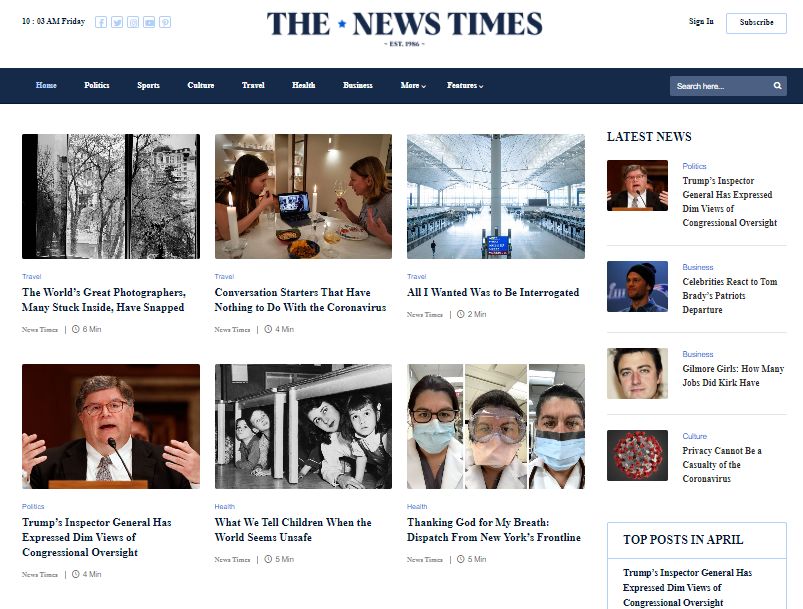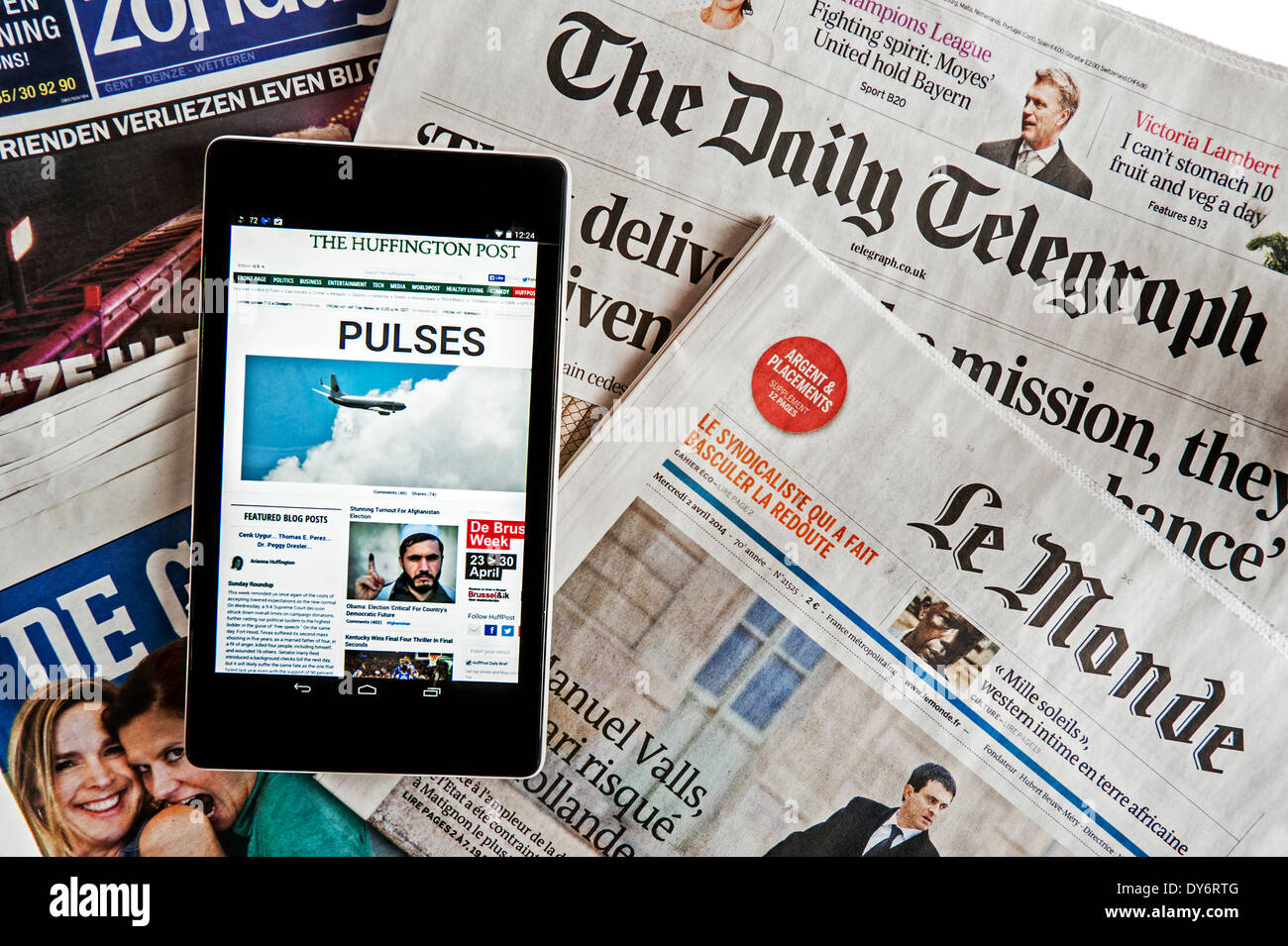How to Use stnews.live to Stay Ahead
Wiki Article
The Value of Fact-Checking in the Globe of News Online
The frequency of false information in today's online news landscape has actually gotten to worrying degrees. Fact-checking companies play a vital role in counteracting this fad. They verify cases and enhance the credibility of journalism. Nevertheless, the performance of these organizations typically rests on their methodologies and public understanding. As audiences navigate this complicated atmosphere, the effects of their findings may shape the future of news usage and depend on. What does this mean for the honesty of info relocating onward?
The Increase of Misinformation in the Digital Age
How has the development of digital innovation contributed to the spread of false information? The quick growth of the net and social networks platforms has actually promoted the circulation of details at an extraordinary rate. Users can share write-ups, video clips, and viewpoints with a mere click, often without validating the web content's accuracy. Formulas focus on marvelous or emotionally billed product, leading to an expansion of misleading stories that catch focus.Additionally, the privacy afforded by digital platforms enables individuals to spread false information without liability (stnews.live). Misinformation flourishes in echo chambers, where individuals are subjected mostly to viewpoints that enhance their ideas, even more entrenching falsehoods. The saturation of info can bewilder customers, making it challenging to recognize legitimate resources from unreliable ones. Consequently, false information has actually become a pervasive concern in the digital landscape, affecting public point of view and count on legitimate news sources
The Role of Fact-Checking Organizations
Fact-checking companies play a vital duty in boosting the credibility of journalism by validating cases made in news records. Their efforts are essential in combating misinformation, ensuring that exact details prevails in the electronic landscape. By holding media electrical outlets liable, these organizations add considerably to informed public discourse.Enhancing Credibility in Journalism
While misinformation multiplies in the digital age, fact-checking organizations play an important role in improving the trustworthiness of journalism. These organizations thoroughly verify cases made in newspaper article, public statements, and social media messages, making certain that details shared to the public is accurate and reliable. By providing independent assessments, they work as an important source for reporters, aiding them keep high requirements of honesty. On top of that, their initiatives advertise openness in media, fostering public trust fund. As audiences come to be progressively critical, the visibility of reliable fact-checking entities can distinguish trusted news sources from those that may spread out frauds. Eventually, the commitment of fact-checking organizations to copyright truthfulness is critical for the health and wellness of autonomous discussion.Combating False Information Successfully
As misinformation remains to spread out rapidly across digital platforms, the role of fact-checking organizations ends up being significantly important in the battle for accurate details. These companies function as watchdogs, scrutinizing cases made by public numbers and media outlets to ensure accountability. By using rigorous research study methods and professional evaluation, they verify truths and clear up deceptive stories. Their searchings for are distributed with numerous channels, enlightening the general public and fostering vital reasoning. Furthermore, partnerships with social media systems enhance their reach, allowing for timely flagging of incorrect information. As electronic literacy expands, the influence of fact-checking organizations is important in empowering audiences to determine fact from falsehood, inevitably contributing to a more enlightened society.Exactly How Misinformation Affects Public Understanding
False information greatly weakens trust in media, leading audiences to doubt the trustworthiness of news resources. Therefore, individuals often are attracted in the direction of electrical outlets that strengthen their current ideas, adding to the polarization of viewpoints. This vibrant produces a fragmented details landscape, where shared understanding ends up being significantly tough to accomplish.Rely on Media

Count on media has come to be significantly vulnerable in the electronic age, where the fast spread of false details can alter public perception. As false information multiplies across social media and on the internet systems, audiences frequently find it challenging to recognize qualified resources from unreliable ones. This uncertainty cultivates suspicion, leading many people to question the intentions behind news reporting. As a result, rely on established media electrical outlets has actually lessened, as customers progressively transform to alternative sources that might lack strenuous editorial criteria. This erosion of trust fund not only impacts specific ideas however additionally undermines the collective capacity to participate in educated conversations. Ultimately, the honesty of journalism is at risk, highlighting the critical requirement for efficient fact-checking to bring back confidence in the media landscape.

Polarization of Point of views
The increasing uncertainty towards traditional media has contributed to a growing polarization of opinions among the public. False information, frequently shared through social media sites and online systems, plays a substantial function in shaping unique ideological divides. Individuals regularly choose details that straightens with their pre-existing beliefs, enhancing their perspectives while disregarding opposing perspectives. This echo chamber effect heightens divisions, resulting in a Continue fragmented public discussion where agreement comes to be increasingly elusive. Furthermore, sensationalized narratives grow in this setting, better skewing public understanding and promoting suspect in legitimate sources. As polarization escalates, the need for efficient fact-checking comes to be extremely important to bridge gaps and advertise notified conversations, eventually making sure a more cohesive society efficient in navigating complicated problems.Techniques for Efficient Fact-Checking
Effective fact-checking relies upon an organized technique that consists of thorough research study, confirmation of sources, and important analysis of insurance claims. A foundational technique is cross-referencing info from numerous legitimate resources to validate its accuracy. Fact-checkers typically make use of specialized databases and archives to map the origin of specific declarations, making certain that the reported details aligns with documented proof.Another crucial approach includes inspecting the context in which claims exist. Deceptive information can occur from out-of-context quotations or discerning information use. By analyzing the more comprehensive story, fact-checkers can identify potential prejudices or misinterpretations.
Additionally, involving with specialists in pertinent areas can offer clearness and understanding that boosts the fact-checking procedure. This collaboration can uncover nuances that laypeople might overlook - stnews.live. Eventually, a self-displined technique combining these methods cultivates an extra enlightened public, boosting the reliability of information distributed in the electronic age
The Influence of Social Media on News Intake
Just how has social media sites transformed the way individuals take in news? The development of platforms like Facebook, Twitter, and Instagram has especially transformed news consumption patterns. News is currently distributed quickly, enabling customers to gain access to real-time updates and engage with material via sort, shares, and remarks. This immediacy has promoted a choice for bite-sized details, often at the expense of comprehensive evaluation.Additionally, social media sites makes it possible for customized news feeds, where formulas curate web content based upon user choices, developing resemble chambers that might restrict exposure to varied viewpoints. The duty of typical news electrical outlets has reduced as people significantly count on peer suggestions and trending topics. The credibility of details is typically endangered, as sensationalism can overshadow valid coverage. Generally, social networks has improved news consumption, emphasizing speed and personalization while testing the requirements of journalistic stability.
Encouraging Target Markets to Recognize Dependable Sources

In addition, examining the authorship and organizational history of newspaper article can expose possible predispositions. Cross-referencing information throughout numerous reputable electrical outlets additionally boosts the confirmation procedure. Making use of digital tools, such as browser extensions that rate the reliability of sites, can also assist in determining credible information. By actively engaging with these sources and cultivating a critical way of thinking, target markets can better furnish themselves to determine trustworthy news sources, eventually cultivating a much more informed society in the middle of the complexities these days's media environment.
The Future of Journalism and Fact-Checking
As the media landscape advances, the future of journalism and fact-checking deals with both challenges and opportunities. The rise of electronic platforms has democratized information circulation, allowing varied voices to arise. This has actually also led to the spreading of misinformation, requiring durable fact-checking mechanisms. Journalists will progressively rely upon innovation, including AI devices, to verify facts rapidly and successfully.Partnership between news organizations and fact-checking entities is expected to enhance trustworthiness and openness. Furthermore, target market involvement will play a crucial function, as notified readers end up being substantial partners in determining credible blog here web content.
The demand for liability and accuracy is likely to expand, pressing reporters to support high criteria in their reporting. Eventually, the future of journalism might depend upon its capability to adjust to technological developments while maintaining journalistic stability, making certain that fact-checking stays a cornerstone of credible news.
Regularly Asked Questions
How Can I Report Misinformation I Come Across Online?
To report misinformation come across online, individuals can utilize platform-specific coverage tools, offer clear evidence, and share the information with fact-checking companies. Engaging with neighborhood discussions can also help elevate understanding about the misinformation.What Are Common Signs of Misinformation in News Articles?
Common indicators of false information in newspaper article include astonishing headlines, lack of reliable sources, emotional language, inconsistent truths, and absence of writer qualifications. Visitors must seriously view publisher site examine web content for these indications to recognize precision.How Do Fact-Checkers Verify Sources?
Fact-checkers validate resources by cross-referencing info with reputable databases, seeking advice from professionals, and examining the original context of cases. They likewise evaluate the reliability of the sources, making certain accurate and reliable info for public intake.What Lawsuits Can Be Taken Against False information?
Lawsuits versus false information might include character assassination lawsuits, cease-and-desist orders, and governing penalties. Targets can look for remedy with civil courts, while some territories enforce penalties or sanctions on platforms distributing incorrect information.Are There Apps for Fact-Checking News On-The-Go?
Numerous applications exist for fact-checking news on-the-go, including Snopes, FactCheck.org, and PolitiFact. These applications aid customers verify cases quickly, promoting notified decision-making and cultivating a much more discerning strategy to consuming news in real-time.Report this wiki page